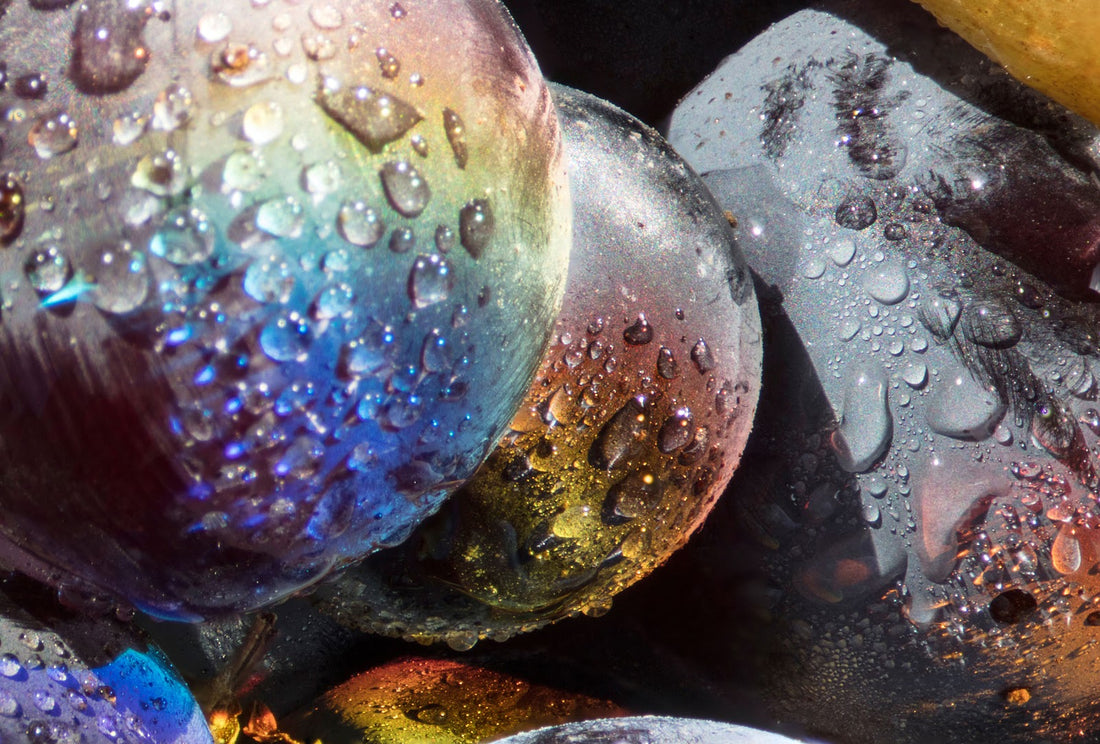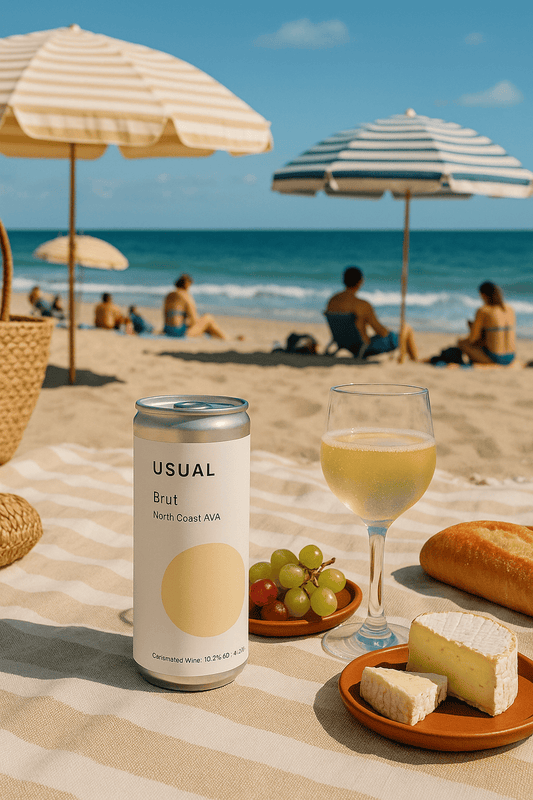
Does Wine Have Sulfites? Unraveling the Presence of Sulfites in Wines
McKenzie HaganNo matter how much or how little you know about wine, chances are you've heard about sulfites. Blamed for everything from allergies to hangovers, sulfites are compounds that naturally occur in the human body, certain foods, and wine. They can also be created synthetically to use as preservatives. As such, there's an ongoing debate about whether or not these compounds can spell trouble for your health.
But is there such a thing as wine without sulfites? And is this type of wine better for your health? This guide will clue you in to everything you need to know about sulfites so you can make an informed decision before picking your next bottle of wine.
What Are Sulfites?

Sulfites are inorganic salts that contain the sulfite ion and can act as preservatives and antioxidants, namely for food and drinks. Some examples of sulfites include sulfur dioxide, sodium bisulfites, and metabisulfites. They can reduce browning on fruits and vegetables, prevent the growth of yeast and bacteria in wine, and even stabilize the potency of medications.
Plenty of foods (think dried fruit, canned soups, and prepackaged deli meats) have added sulfites, while others such as chocolate, black tea, eggs, and fermented foods like pickles, sauerkraut, and kimchi contain natural sulfites.
Wine also contains naturally occurring sulfites. Because sulfur dioxide is released as a natural byproduct of the fermentation process during winemaking, it's impossible to have a completely sulfite-free wine. That said, you can find wines that are made without added sulfites (aka lab-created, synthetic sulfites).
How Do Sulfites Affect Wine?
As mentioned, synthetic sulfites affect wine by acting as a preservative and inhibiting bacterial contamination. Many winemakers use sulfur dioxide to kill off unwanted yeast and bacteria so you don't get an oxidized wine, which could ultimately ruin a wine's taste, texture, color, and appearance.
However, not all wines have added sulfites. For instance, Usual Wines are made without any added sulfites, no sugar, zero chemical additives, and minimal intervention.
How Much Sulfur Dioxide Does Wine Have?
Sulfite levels are measured in "ppm," or parts per million. In the United States, conventional wines can have up to 350ppm of sulfites. By contrast, organic wines max out sulfite levels at just 10ppm, and they must be naturally occurring. Per the USDA, winemakers must add the phrase "contains sulfites" on wine labels when there is more than 10ppm.
If you see a wine promoted as "sulfite-free," be aware that it only means there are no added sulfites. The closest you're going to get to wine without sulfites (natural or otherwise) is an organic wine that does not have the "contains sulfites" label.
Sulfites in Wine: Red Wine vs. White Wine
While all wine contains some level of sulfites, the prevailing myth has been that red wine has more sulfites than white wine. But the science doesn't hold. Sulfite levels depend on how the wine is made and how much sugar it has.
When producing red wine, the juice has contact with the grape skins and seeds. This results in a higher amount of tannins, which act as a natural antioxidant that protects the wine from bacteria. As such, less sulfur dioxide is required.
By comparison, white wine ferments for a shorter time than red wine and the juice doesn't have contact with the grape skins. As a result, white wine tends to have more sugar than red wine, thereby attracting more bacteria. And you know what that means: more sulfites are needed to halt these microbes from growing wild and ruining the wine.
Still, there are always exceptions to the rule and not all white wines are high in sugar — dry brut and high-tannin white wines like Chardonnay are two such examples. When it comes to sulfites, it's not simply a matter of red vs. white.
The Truth About Sulfites and Your Health

While sulfites are Generally Recognized as Safe (GRAS) by the FDA, there are many people who say these compounds can have disastrous effects, including headaches, hangovers, and hives. (And those are just the H's.)
The red wine headache is a common complaint attributed to sulfites. While there is some recent research that shows sulfite concentration in wine can induce headaches, there are other studies that indicate histamine is more likely the cause. As it turns out, red wine has significantly more histamine than white wine.
Another side effect usually attributed to sulfites is the dreaded hangover, that painful combination of throbbing headache, body aches, fatigue, nausea, and thirst. However, rather than blaming sulfites alone, don't forget to pay close attention to the alcohol levels of your wine since this could be the more probable cause.
While the jury is out on the effects of sulfites in headaches and other wine-drinking side effects, sulfites seem to play a significant role in triggering asthma. Some research shows a link between wine consumption and asthma, with 3-10% of asthmatic adults exhibiting adverse reactions to sulfites, including potentially life-threatening reactions.
Sulfites in Wine Are Just Part of the Equation
Even though sulfites have gotten a bad rap for causing headaches, hangovers, and numerous other unwanted symptoms, the FDA asserts that only 1% of the U.S. population has a sulfite allergy. The more likely culprits are alcohol content, histamine, and tannins.
Or, perhaps it's one (or a combination) of the 60-plus ingredients that conventional winemakers can use without disclosing on the wine label. After all, it's pretty hard to know precisely what's triggering an allergic reaction when you don't even know what's in your bottle of wine, right?
Choose Wine Without Sulfites (Added Sulfites, That Is)
Natural wine, organic wine, and biodynamic wines are made using the least amount of intervention and chemicals as possible. Research suggests that these types of wine can offer greater health benefits and fewer side effects than those that are commercially produced.
It's also a smart idea to opt for low-sugar wines that don't need extra sulfites. Case in point: Usual Wines, which are made the Old-World way, in small batches from sustainably farmed grapes without additives or added sugar.
It’s Time to Enjoy a Sulfite-Free Sip
While it would be inaccurate to say you can find wine with absolutely no sulfites, you can still find wine with low sulfite levels that are naturally occurring — not chemically created.
Sulfites have been long used to preserve wine's freshness and enhance its color and taste, which isn't necessarily a bad thing. But with so many commercial wines using dozens of other undisclosed ingredients (as well as production manipulations), it's no wonder a bottle of wine can open up a Pandora's box of health issues. To reduce your risk of any potential side effects, be sure to research your wine and look for "no added sulfites" on the label.
Fortunately, whether you're a wine lover whose tastes lean toward red, white, or rosé, there are a number of low-sulfite wines you can enjoy. To get started, pick a mixed pack of Usual Wines, which has plenty of the good stuff and none of the bad stuff. Because when it comes to sulfites in wine, less is more.








